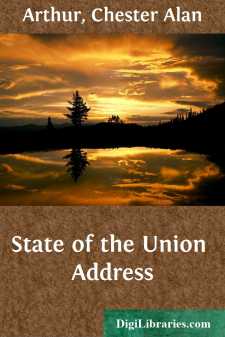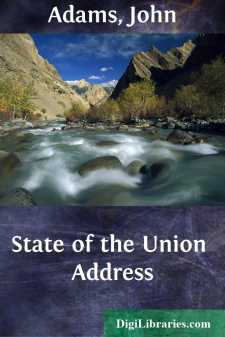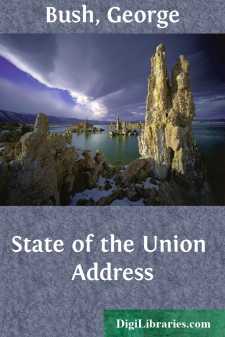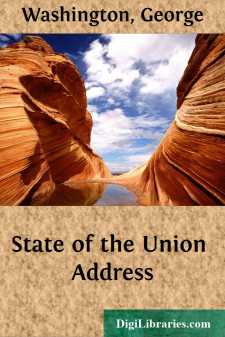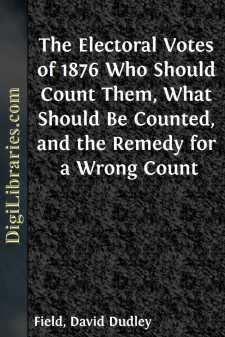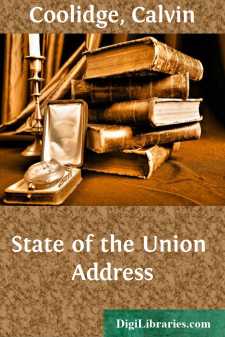Political Science
- Conspiracy & Scandal Investigations 1
- Constitutions 7
- Economic Conditions 10
- General 46
- Government 6
- History & Theory
- Peace 1
History & Theory Books
Sort by:
MEMOIR OF HIS GRACE THE DUKE OF WELLINGTON. Arthur Wellesley, Duke of Wellington, is the fourth son of Garret,second Earl of Mornington, by Anne, the eldest daughter of Arthur Hill,Viscount Dungannon. He was borne at Dangan Castle, in the county ofMeath, Ireland, on the 1st of May, 1769. As in the case of many of the chief nobility and landholders in Ireland, the ancestors of the Duke were scions of an...
more...
To the Senate and House of Representatives of the United States: An appalling calamity has befallen the American people since their chosen representatives last met in the halls where you are now assembled. We might else recall with unalloyed content the rare prosperity with which throughout the year the nation has been blessed. Its harvests have been plenteous; its varied industries have thriven; the...
more...
by:
John Adams
Gentlemen of the Senate and Gentlemen of the House of Representatives: I was for some time apprehensive that it would be necessary, on account of the contagious sickness which afflicted the city of Philadelphia, to convene the National Legislature at some other place. This measure it was desirable to avoid, because it would occasion much public inconvenience and a considerable public expense and add to...
more...
by:
George Bush
Tonight, I come not to speak about the "State of the Government", not to detail every new initiative we plan for the coming year, nor describe every line in the budget. I'm here to speak to you and to the American people about the State of the Union about our world, the changes we've seen, the challenges we face. And what that means for America. There are singular moments in history,...
more...
Fellow-Citizens of the Senate and House of Representatives: I embrace with great satisfaction the opportunity which now presents itself of congratulating you on the present favorable prospects of our public affairs. The recent accession of the important state of North Carolina to the Constitution of the United States (of which official information has been received), the rising credit and...
more...
Who should Count them,What should be Counted, andThe Remedy for a Wrong Count. The electoral votes of 1876 have been cast. The certificates are now in Washington, or on their way thither, to be kept by the President of the Senate until their seals are broken in February. The certificates and the votes of thirty-four of the States are undisputed. The remaining four are debatable, and questions...
more...
CHAPTER I. THE ENGLISH MISUNDERSTANDING. Whatever may be the ultimate verdict of history upon the long struggle of the majority of the Irish people for self-government, the picture of a small country with large aspirations giving of its best unstintingly to the world, while gaining for itself little beyond sympathy, will appeal to the imagination of future ages long after the Irish Question, as we know...
more...
Irish Loyalists will not soon forget the early part of 1893. Arriving in Dublin in March, it at once became evident that the industrial community regarded Home Rule, not with the academical indifference attributed to the bulk of the English electorate, but with absolute dismay; not as a possibility which might be pleasantly discussed between friends, but as a wholly unnecessary measure, darkly...
more...
by:
Anonymous
CAUSES OF THE REBELLION, &c. &c. FELLOW SUBJECTS, It is always a bold undertaking in a private individual to become the advocate of a suffering people. It is peculiarly difficult at the present moment to be the advocate of the people of Ireland, because there are among them men who have taken the power of redress into their own hands, and committed acts of outrage and rebellion which no...
more...
by:
Calvin Coolidge
Since the close of the last Congress the Nation has lost President Harding. The world knew his kindness and his humanity, his greatness and his character. He has left his mark upon history. He has made justice more certain and peace more secure. The surpassing tribute paid to his memory as he was borne across the continent to rest at last at home revealed the place he held in the hearts of the American...
more...



